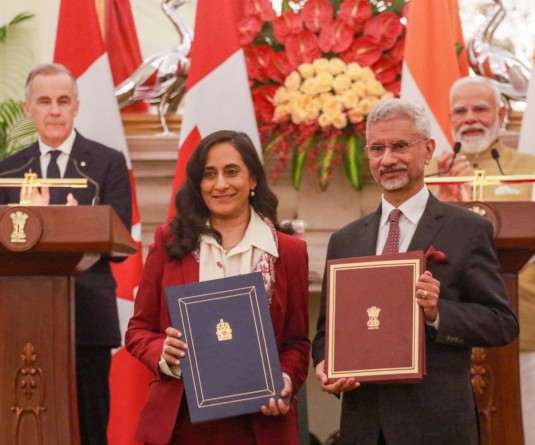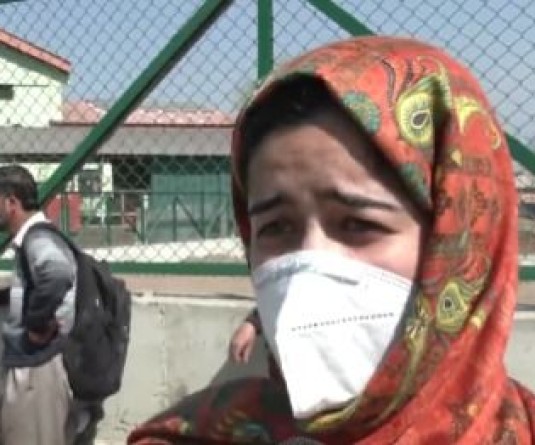
DHARAMSHALA, May 7 (TNN): Lukar Jam has a bump on his wrist. His right shoulder is higher than his left, and hurts often too. These, however, are not the only evidence he has from the five years spent in a Chinese jail. He can, for example, even after 14 years of being released, recite all the prison rules in Chinese -- something that was beaten into him.
The Chinese police came for him in the wee hours of a cold February morning in 1992 while he was traveling from Lhasa to Thengri. "They didn't say anything. Just that they knew who I was and what I was doing," says Jam, who was 24 then. He had formed an organization with five other friends called Dokham Shunu Shithup, with the aim of protesting against Chinese atrocities on Tibet. "We were young then, and very vocal about what we wanted to do. We were much more educated than the average Tibetan. We knew the Chinese police were keeping a close watch on us for all this," he says. The organization was barely six months old.
Today at 43, Jam is the vice president of Gu Chu Sum, a Dharamshala-based organization that supports former political prisoners like him who escape to India from Tibet. In order to rehabilitate them, they are taught English, given lessons in using computers and other vocational skills.
He was one of the prisoners who joined the organization when he managed an escape in 1998. But the memories of the time spent at the Terlengkha Detention Centre and Pinang prison in Amdo, Tibet are still like a fresh wound. Calmly seated throughout the interview, Jam gets up and begins pacing around the room, gesturing with his hands as he describes the time spent in prison.
"It was shaped like the inside of a coffin. There was one narrow grilled opening high on the wall. But it wasn't for us. It was designed that way so that the guards could look in," says Jam, who was put into prison without trial as the Chinese government rejected his lawyer. Before he knew it, he was a "threat to the unity of the motherland" and was sentenced to 18 years. Beatings in prison were an everyday affair. Electric batons would routinely be employed to check people not standing in a line for the two meals the prisoners got everyday, not saluting a guard, or not being able to recite the list of prison rules. "I find their form of torture foolish and medieval. It's probably like Guantanamo Bay," says Jam, who was locked up in a cell with four other Chinese convicts.
Interrogation was violent and brutal. Jam's arms were once chained behind his back tight enough to give him lopsided shoulders. Sleep deprivation was a common interrogation technique. "Once, round after round of interrogators came and questioned me for two days straight. I wasn't allowed to sleep. When you haven't slept that long, your mouth starts tasting like salt," says Jam.
But he says he is one of the lucky ones. His friend, Australia-based writer Namlo Yak, who was arrested at the same time, did not have it easy either. "Regular electric shocks have given him a perpetual stammer," says Jam, who was released just 5 years into his term on medical parole. A congested cell, and regular beatings had reduced him to a frail frame weighing just 30 kilos. "The police did not want to take any responsibility of someone dying at their hands," says Jam whose subsequent health expenditure was borne by his family. At the next opportunity, he escaped through Nepal. "I had picked up a little Nepali and pretended to be a trader," says Jam.
That was in 1998. Today, Jam says, it's harder to escape unnoticed to India through Nepal. "The border is much more heavily guarded. The Chinese government rewards the guards there for handing Tibetans back. Also, it is difficult for those who can't read maps. A lot of them lose their way in the snow and die," says Jam.
The Chinese police came for him in the wee hours of a cold February morning in 1992 while he was traveling from Lhasa to Thengri. "They didn't say anything. Just that they knew who I was and what I was doing," says Jam, who was 24 then. He had formed an organization with five other friends called Dokham Shunu Shithup, with the aim of protesting against Chinese atrocities on Tibet. "We were young then, and very vocal about what we wanted to do. We were much more educated than the average Tibetan. We knew the Chinese police were keeping a close watch on us for all this," he says. The organization was barely six months old.
Today at 43, Jam is the vice president of Gu Chu Sum, a Dharamshala-based organization that supports former political prisoners like him who escape to India from Tibet. In order to rehabilitate them, they are taught English, given lessons in using computers and other vocational skills.
He was one of the prisoners who joined the organization when he managed an escape in 1998. But the memories of the time spent at the Terlengkha Detention Centre and Pinang prison in Amdo, Tibet are still like a fresh wound. Calmly seated throughout the interview, Jam gets up and begins pacing around the room, gesturing with his hands as he describes the time spent in prison.
"It was shaped like the inside of a coffin. There was one narrow grilled opening high on the wall. But it wasn't for us. It was designed that way so that the guards could look in," says Jam, who was put into prison without trial as the Chinese government rejected his lawyer. Before he knew it, he was a "threat to the unity of the motherland" and was sentenced to 18 years. Beatings in prison were an everyday affair. Electric batons would routinely be employed to check people not standing in a line for the two meals the prisoners got everyday, not saluting a guard, or not being able to recite the list of prison rules. "I find their form of torture foolish and medieval. It's probably like Guantanamo Bay," says Jam, who was locked up in a cell with four other Chinese convicts.
Interrogation was violent and brutal. Jam's arms were once chained behind his back tight enough to give him lopsided shoulders. Sleep deprivation was a common interrogation technique. "Once, round after round of interrogators came and questioned me for two days straight. I wasn't allowed to sleep. When you haven't slept that long, your mouth starts tasting like salt," says Jam.
But he says he is one of the lucky ones. His friend, Australia-based writer Namlo Yak, who was arrested at the same time, did not have it easy either. "Regular electric shocks have given him a perpetual stammer," says Jam, who was released just 5 years into his term on medical parole. A congested cell, and regular beatings had reduced him to a frail frame weighing just 30 kilos. "The police did not want to take any responsibility of someone dying at their hands," says Jam whose subsequent health expenditure was borne by his family. At the next opportunity, he escaped through Nepal. "I had picked up a little Nepali and pretended to be a trader," says Jam.
That was in 1998. Today, Jam says, it's harder to escape unnoticed to India through Nepal. "The border is much more heavily guarded. The Chinese government rewards the guards there for handing Tibetans back. Also, it is difficult for those who can't read maps. A lot of them lose their way in the snow and die," says Jam.






